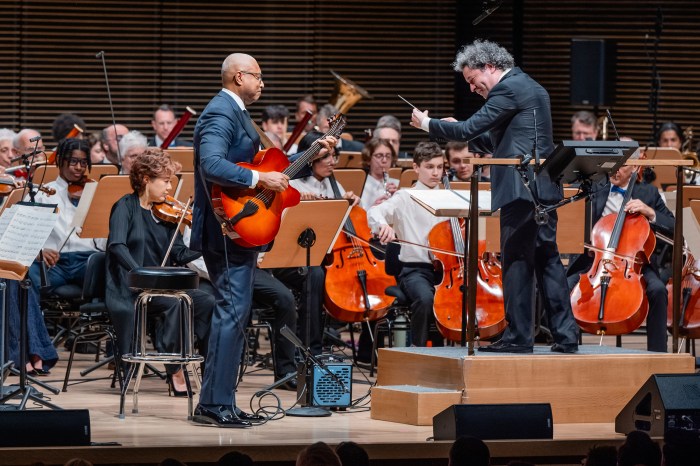By Chris Fuchs
But Brenkert, the pastor of St. Clement Pope of Jamaica, hadn't received a call or a letter from the bishop, nothing official to say that his $496,909 worth of loans would be chalked up to oblivion. All he got was a mid-afternoon phone call Friday from a reporter asking for an interview. And that was good enough for him.
“It's a relief,” he said, “because every year that you sign your financial report and you go through it and come down to 'indebtedness,' you see diocesan loans: $220,201; other specified: school, $276,708.”
St. Clement Pope, an imposing edifice on 123rd Avenue near 141st Street, was one of 33 parishes in Queens and one of 102 in the diocese, whose debts were forgiven last week by the bishop. Also absolved were more than 25 parish schools, one high school and six diocesan programs and agencies.
The bishop, who has led the diocese's 1.6 million Catholics since 1996, delivered the news during a mass at the Immaculate Conception Center in Douglaston, saying the debt forgiveness plan would have “no adverse effect on the fiscal and legal condition of the diocese.” After a review of the parishes' financial statements, the bishop said, he concluded that the more than $118 million was “uncollectible” and thus absolved their debt.
Since the mid-1970s, an albatross of financial uncertainty had hung from St. Clement Pope, a debt shared between the church and its elementary school. Founded in 1908, St. Clement Pope was for many years a mix of Germans, Irish and Italians, but over the last three decades it has become almost entirely African-American.
This ethnic transformation, begun in the 1970s, mandated a new aesthetic. “They blended European architecture with African American sensitivities,” Brenkert said. To that end, the parish hired Yon Rieger, a prominent artist, to redesign the interior of the church. Metal tabernacles, chalices and crosses were replaced with wooden ones. The altar was moved to the center of the church. Stationary pews were abandoned; movable seating was favored. And statues of African saints were added to the sanctuary for veneration.
The cost: $220,201. The result: debt.
Around the same time, Brenkert said, St. Clement Pope's elementary school was teetering on the brink of closing “for a number of reasons,” but mainly because it was saddled with debt. So the church borrowed from the diocese, hoping to scratch out its financial woes. Instead, it created more – $276,708 more.
One thing that Brenkert has done successfully is manage to pay off the church's back assessments – annual contributions that all parishes must make to the diocese to fund various programs and services.
“But it's like robbing Peter to pay Paul,” Brenkert said. “You cannot pay off a debt if you're trying to keep your head above water and pay these other bills, too.”
The bishop said he would appoint a committee of pastors to review case by case the back assessments owed by 134 of the 218 parishes in the diocese, an amount he said has totaled almost $21 million since Aug. 31.
Debt, though, was the least of St. Clement Pope's troubles, Brenkert said. When he was appointed pastor, his directive was simple: prevent the debt from ballooning. But the overhead costs born of running a school, a brothers' residence, a rectory and a church have exerted a great strain on his parish.
Last year, he said, the church spent $60,000 on maintenance fees and $30,000 on insurance, taking in roughly $40,000 from the congregation. So driven by frugality and pragmatism, Brenkert has insisted on remaining a one-man show. He employs no chef, no permanent housekeeper and no assistants. There are no associate priests and no visiting ones, either. There is just Father Edward J. Brenkert.
“You have to run a tight ship when it comes to fiscal responsibility,” Brenkert said. “We don't spend money on frivolous things.”
When he arrived at St. Clement Pope in 1992, Brenkert said, weekly contributions totaled close to $1,200. And on the first Sunday of each month, he said, that amount would nearly double.
In recent times, fueled by a strong economy, the contributions have become even grander, he said. Now, the church collects anywhere from $1,800 to $3,300 a week, all of which is used to defray the cost of operating expenses.
“I'm sure the parish will be delighted,” he said.































